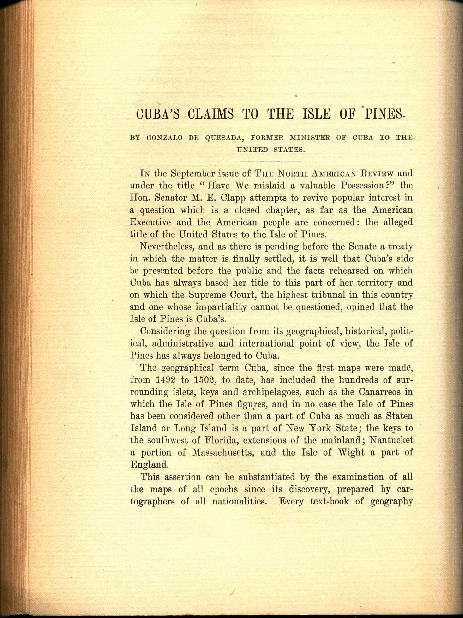Cuba's Claims to the Isle of Pines
This article--written by Cuba’s Minister to the United States--stands in stark contrast to the prior album. Where the latter subtly hints at an attractive potential this work is a forceful statement of ownership. The Isle of Pines is firmly part of Cuba, it argues. Any other option would demand consent of the Cuban people rather than merely ignoring a treaty and trying to establish some squatter claim. Gonzalo de Quesada’s arguments are firmly grounded in precedent and prior law. They form one of the most direct claims made in this exhibit of communal status. He argues that the will of the Cuban government must be respected. This is contrary to the implicit counterpoint that the United States can and should ignore Cuban claims of legitimacy out of self-interest.
The medium in which Quesada made these claims is important. As Cuba’s first Minister to the United States and was projecting the legitimacy of Cuba’s government in his actions. The act of making one’s case in such a formal medium establishes the respectability of his nation. This claim is made in a U.S. journal and thus directed at an educated U.S. audience. Cuba is here staking its claim for relevance and independence, which was admittedly weakened by the Platt Amendment. Without recognition as a sovereign state Cuba risked losing land and power.

